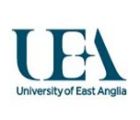Mit dem Jahr 1830 trat die ein für allemal entscheidende Krise ein. Die Bourgeoisie hatte in Frankreich und England politische Macht erobert. Von da an gewann der Klassenkampf, praktisch und theoretisch, mehr und mehr ausgesprochne und drohende Formen. Er läutete die Totenglocke der wissenschaftlichen bürgerlichen Ökonomie. Es handelte sich jetzt nicht mehr darum, ob dies oder jenes Theorem wahr sei, sondern ob es dem Kapital nützlich oder schädlich, bequem oder unbequem, ob polizeiwidrig oder nicht. An die Stelle uneigennütziger Forschung trat bezahlte Klopffechterei, an die Stelle unbefangner wissenschaftlicher Untersuchung das böse Gewissen und die schlechte Absicht der Apologetik.
With the year 1830 came the decisive crisis. In France and in England the bourgeoise had conquered political power. Thenceforth, the class-struggle, practically as well as theoretically, took on more and more outspoken and threatening forms. It sounded the death knell of scientific bourgeois economy. It was no longer a question, whether this theorem or that was true, but whether it was useful to capital or harmful, expedient or inexpedient, politically dangerous or not. In place of disinterested enquirers, there were hired prize-fighters; in place of genuine scientific research, the bad consequence and the evil intent of apologetic.
Karl Marx, Capital, Postscript to the Second Edition
Karl Marx, Capital, Postscript to the Second Edition

